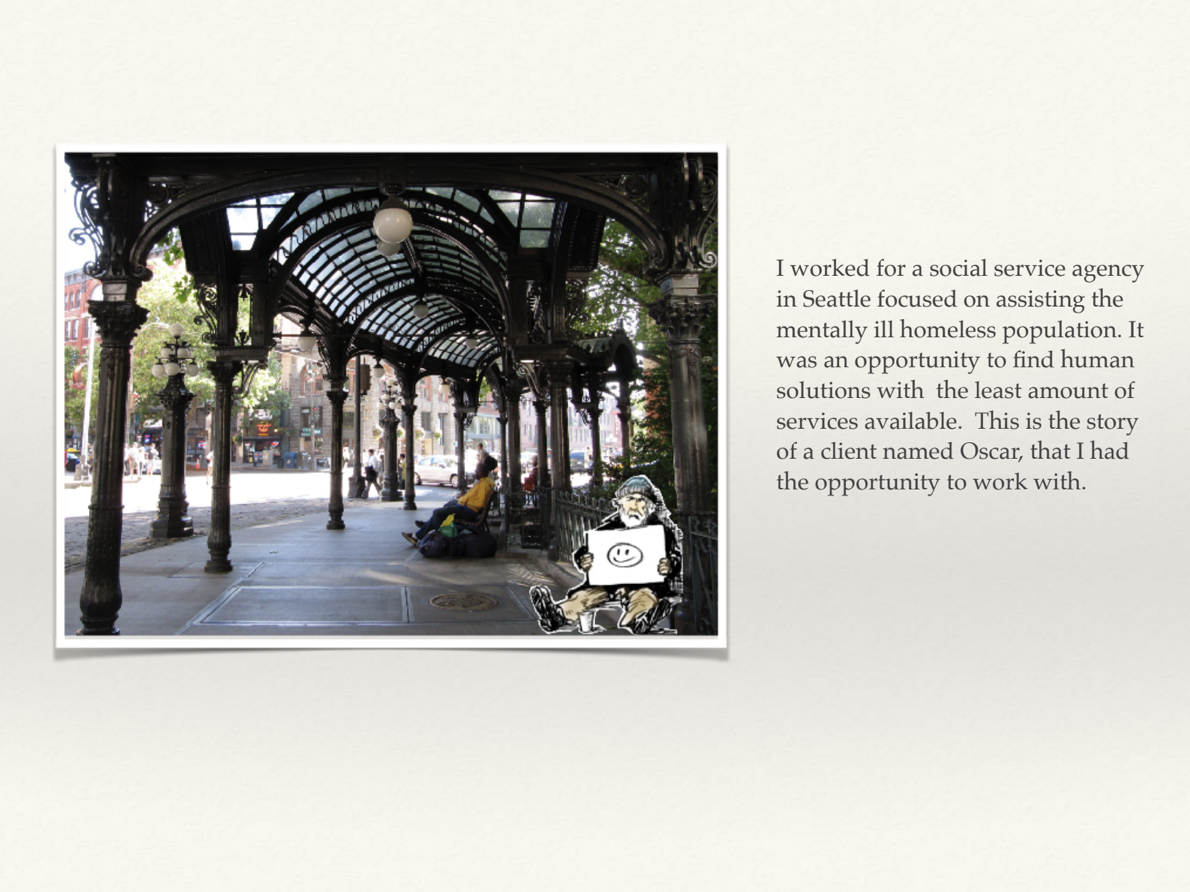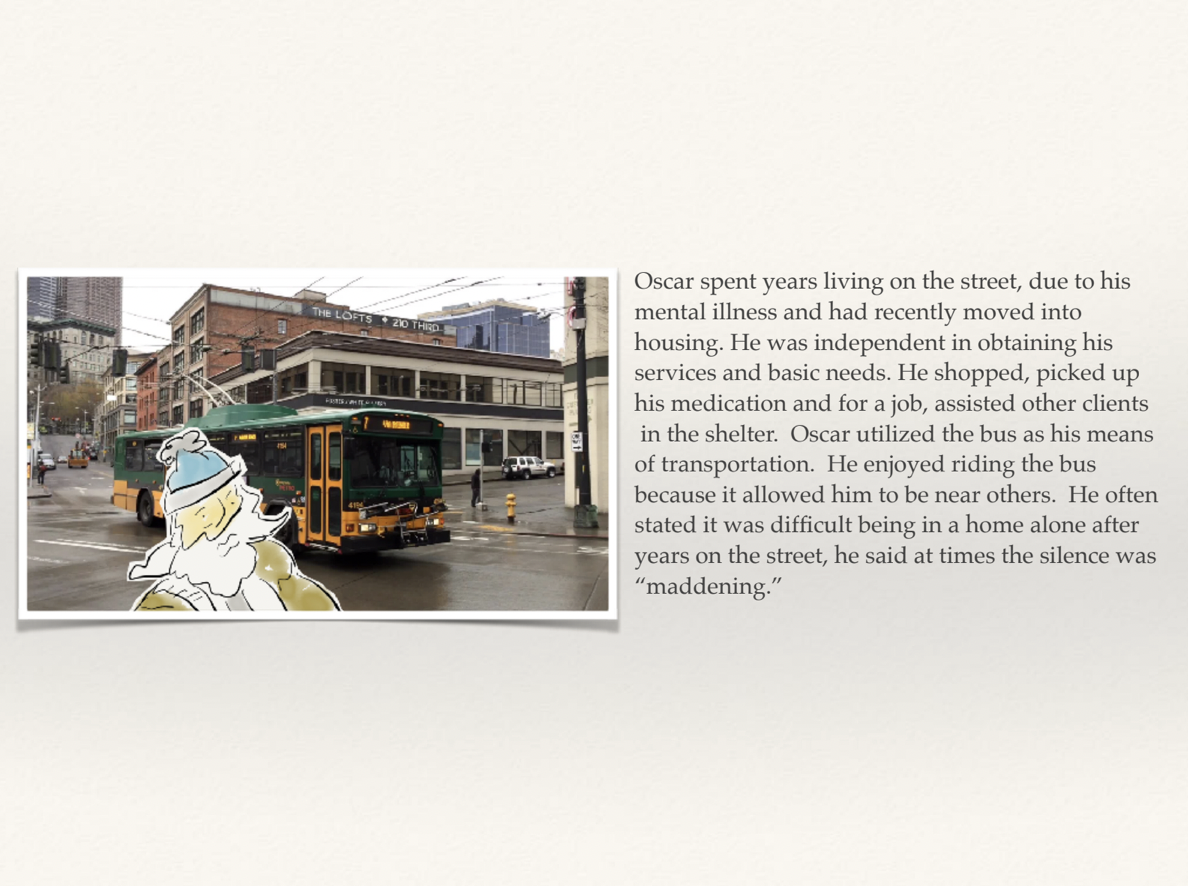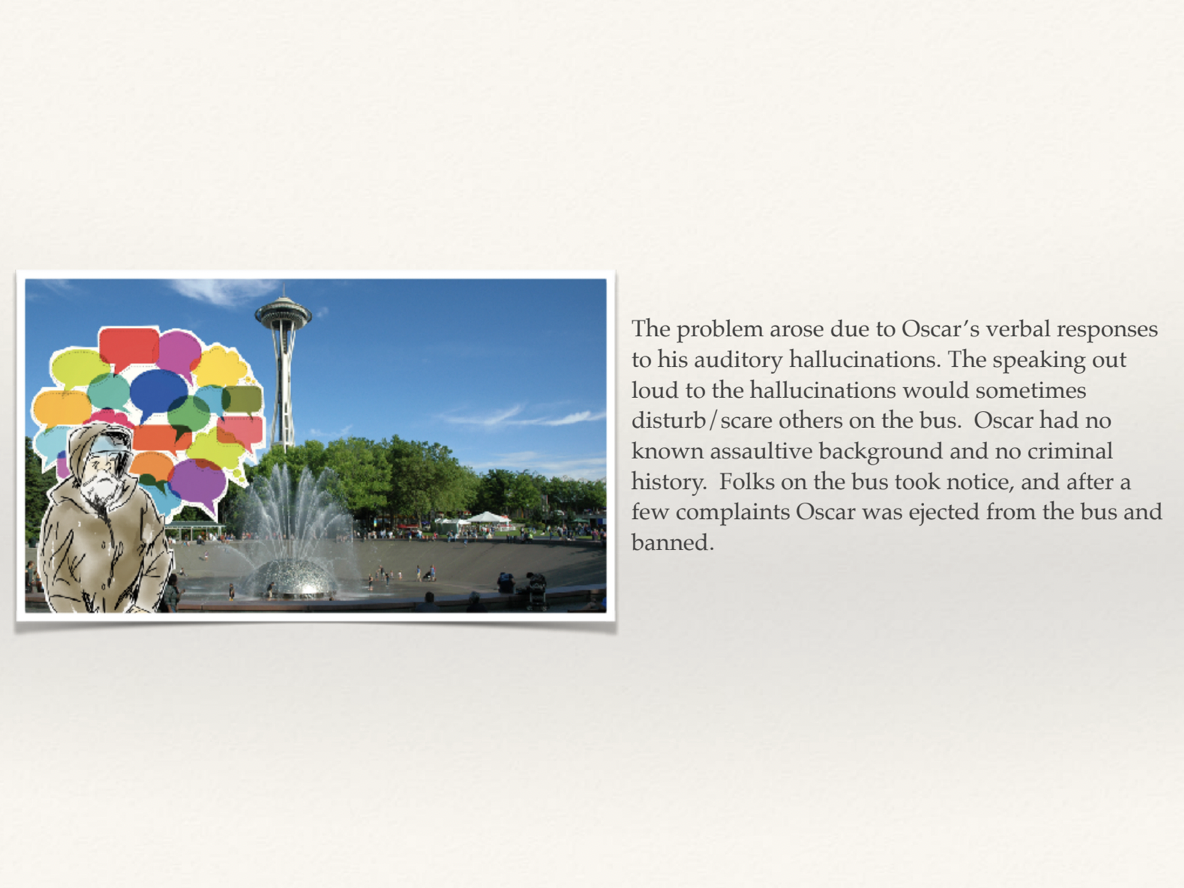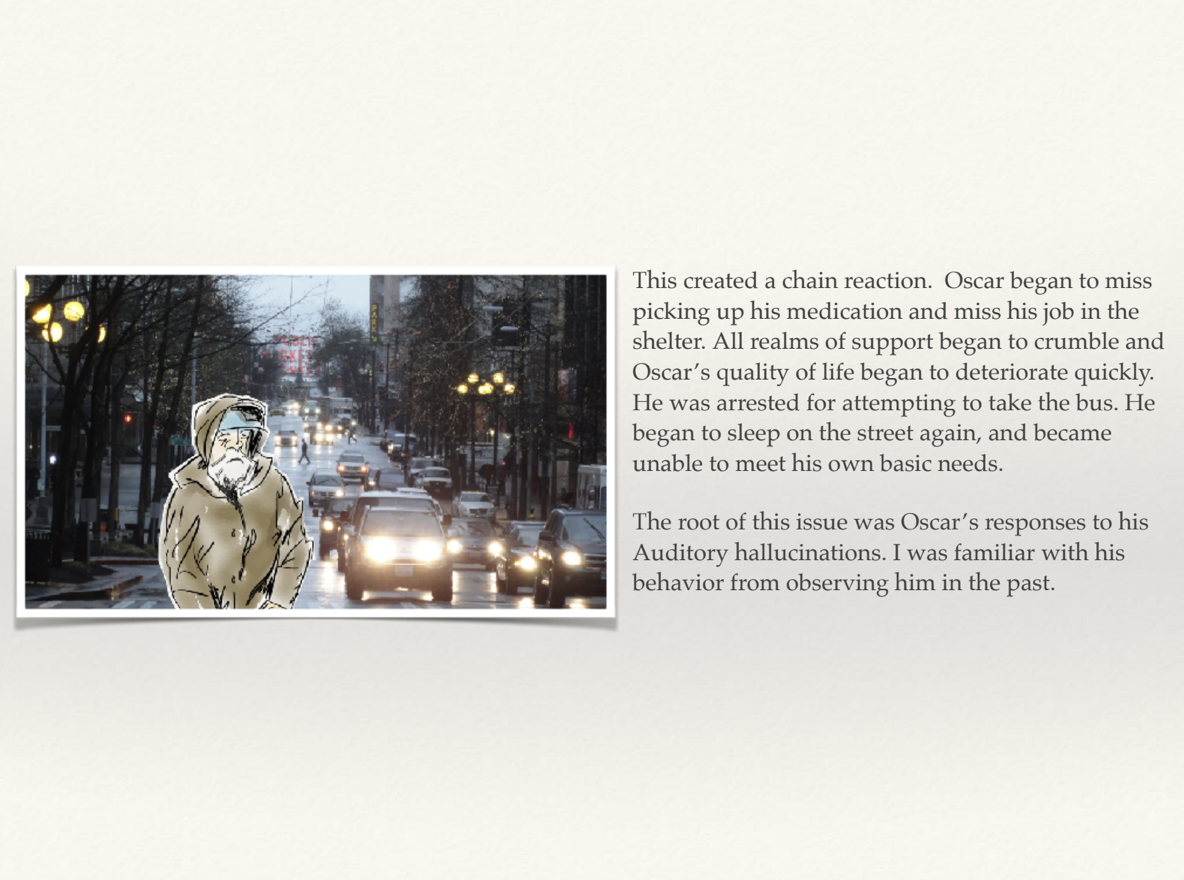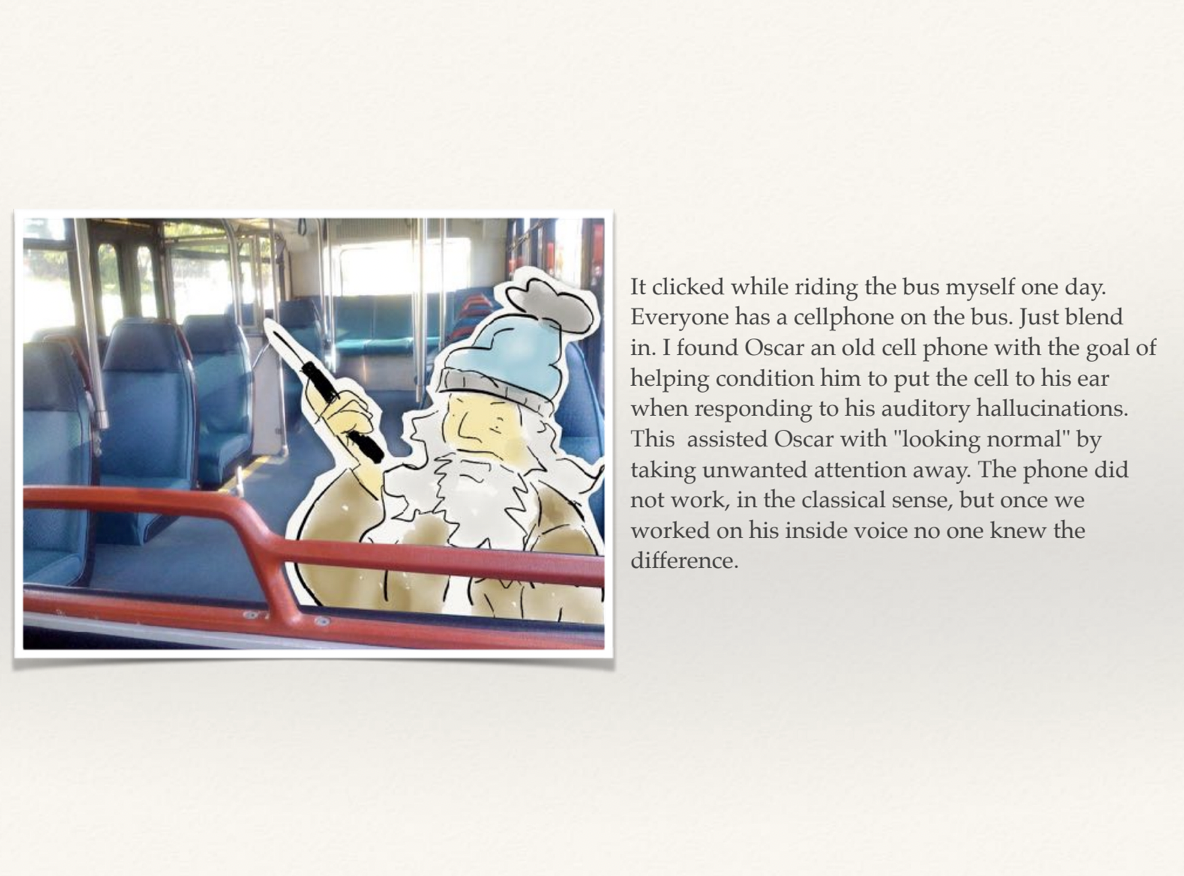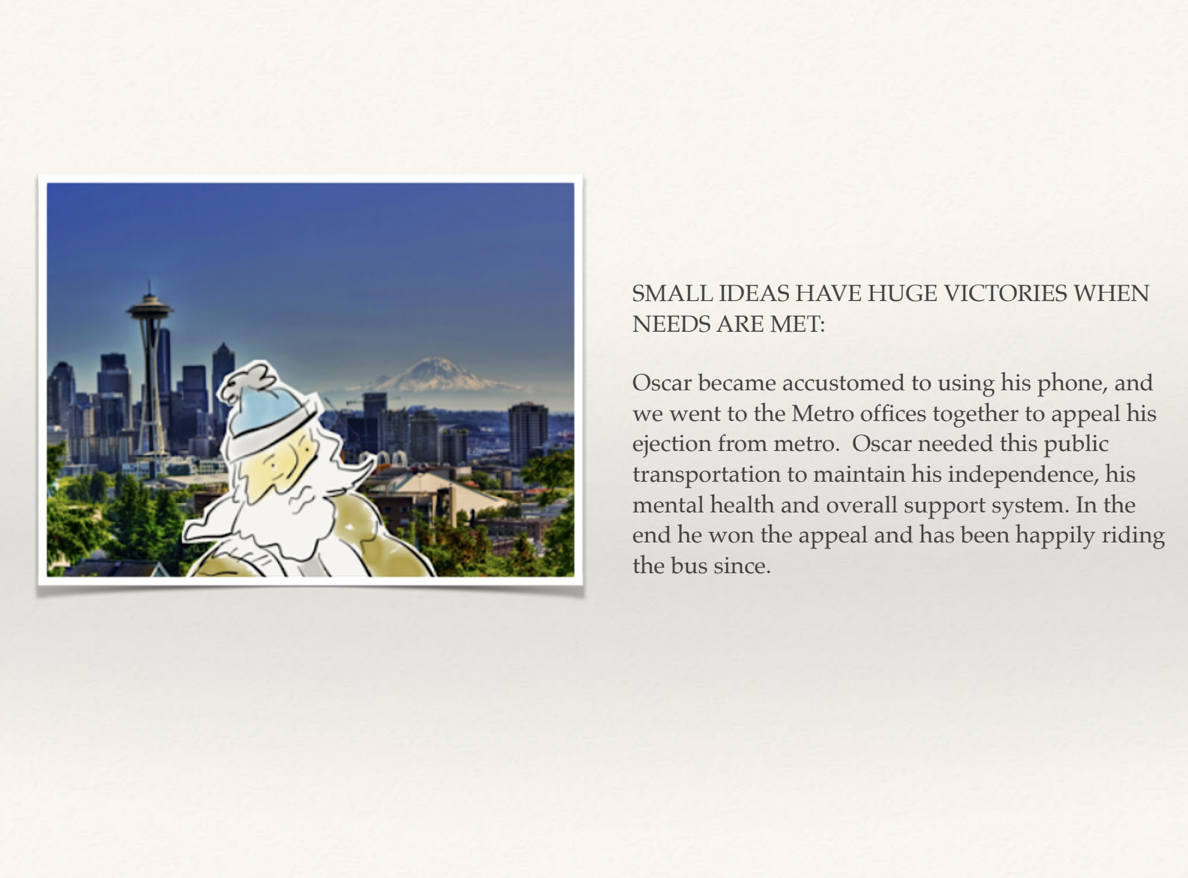This is a short summary of a few ways User Experience research and design played into my work in the mental health field when problem solving, both system and individual needs.
The story of Oscar
1811 East Lake Project
1811 Eastlake, which opened in 2005 and provides supportive housing to 75 formerly homeless adults with chronic alcohol use disorders. It is the first of its kind in Washington to address the needs of homeless adults who were previously the heaviest users of publicly-funded crisis services. 1811 Eastlake is the subject of multiple rigorous evaluations and has received recognition both nationally and internationally for its effectiveness. 2019 Press
Research
I was working as a clinical case manager at Downtown Emergency Service Center, (DESC) and was fortunate to partner with the team from the Addictive Behaviors Research Center of the University of Washington a national leader in substance abuse research, in evaluating 1811 Eastlake.
A grant from the Robert Wood Johnson Foundation funded an evaluation on the first three years of operation. This study examined the relationship between residing in permanent supportive housing in two salient domains: variables related to quality of life and the suppressed use of crisis services. Data collection from this and subsequent studies has resulted in a number of important research articles:
The first outcomes paper published in the Journal of American Medical Association shows that providing housing and on-site services without requirements of abstinence or treatment is significantly more cost-effective than allowing them to remain homeless. Read highlights from the study.
Research published in the American Journal of Public Health documents decreases in alcohol use and alcohol-related problems among residents. The results provide a strong rebuttal to the “enabling” hypothesis, which held that providing alcohol-dependent people with housing where they were not prohibited from drinking would cause them to drink even more and experience more dire consequences as a result.
A study in the journal Addictive Behaviors examined the underlying factors associated with reductions in drinking and alcohol-related problems among DESC clients. Motivation to change was consistently associated with improved alcohol outcomes, whereas treatment attendance was not. One implication is for more focus on enhancing client motivation to change rather than simply insisting on treatment attendance.
In a study published Journal of Community of Psychology researchers compared the correspondence between self-report and archival records on public service utilization over short (30 days) and longer (3 years) periods by chronically homeless people. Recall of events over the short term corresponded closely with archival records.
Interviews with and close observation of chronically homeless people after housing acquisition yield important insights into motivations and past experiences of participants. Researchers published in the Journal of Social Work Practice and Addictions explored issues relevant to a female subpopulation in one study, in another study published in the International Journal of Drug Policy, a focus on perceived positive and negative effects of alcohol use were explored to gain a stronger basis for the development of more tailored harm reduction interventions.


